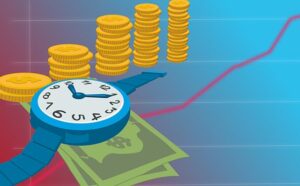Financial freedom is a common goal that most people share but few take the time necessary to plan for. Budgeting is one of the most vital skills for financial independence, empowering individuals to manage their income, expenses, savings, and investments effectively. If you don’t have a suggested expense limit, it’s so easy to spend whatever, whether it’s more than you can afford or not.” The lack of a structured budget leads to spending more, and ultimately to financial stress and anxiety about finances. A good budget plan not only gives you a comfortable life but also helps you create long-term financial security. Here are some top budgeting tips for achieving financial freedom!
Examine Your Financial Outlook

An overview of your fiscal situation is the first step to budgeting. This means analysing income, fixed costs, discretionary spending and debts. Making sense of your finances gives you an overview of your monthly expenditures. Using budgeting apps or spreadsheets to track your spending can also bring to light wasteful expenses and areas where you can cut back. Knowing your cash flow also allows you to allocate money accordingly for must-have categories, such as housing, utilities, savings and entertainment.
Set Clear Financial Goals
Indeed, budgeting can become more efficient when aligned with financial objectives. Such goals could include short-term milestones, such as saving for a vacation, or long-term goals, such as purchasing a house or retiring early. Having concrete goals set the motivation and provide you a direction to your budgeting plan. It’s easy to change your spending if you have certain milestones that you need to achieve.
Create a Realistic Budget
Until one actually lays out their budget, this just remains a thought process or hope. Also, it is important to differentiate needs from wants and make sure that needs expenses are covered before incurring unnecessary expenses. One notable budgeting plan is the 50/30/20 plan: 50 percent to needs, 30 percent to wants and 20 percent to savings or debt repayment. Keeping to a realistic budget avoids financial pitfalls and promotes stability in the long run.
Read Also ; Dopamine Fasting for Better Focus and Well-being
Best practices for spending: Keep records, categorize spending
Tracking of expenses is a basic budgeting step. You can organize your financial obligations using fixed (rent, mortgage, utility bills) and variable (entertainment, dining out, shopping) categories that give you an idea of your spending habits. It also can be tracked using financial apps, banking alerts or basic spreadsheets. Assessing your spending helps you pinpoint where to make changes that lead to increased savings.
Cut Out Non-Essential Expenses
Taking some unnecessary shackles also is one of the very important steps for your money freedom. Free up disposable income: A lot of people spend mindlessly on things like daily coffee, dates, etc. Assessing and cutting unnecessary costs can free up resources for more pressing financial concerns. Utilizing homemade meals, public transport, and ceasing unused subscriptions are all great ways to help save in the long run.
Build an Emergency Fund
An emergency fund serves as your financial safety net, keeping you from running into expenses you never imagined, such as unforeseen health care needs, car repairs or workplace lay-offs. Financial experts suggest having three to six months of expenses stored away in an emergency fund. If you set up automatic transfers to a different savings account you can contribute consistently. An emergency fund makes you less reliant on credit cards and loans during a crisis and prevents you from crippling your finances.
Prioritize Debt Repayment
One of the biggest barriers to achieving financial freedom is debt. High-interest debts, notably credit card debts, can grow vertically and drain finances. Debt repayment should be at the heart of any budget. There are methods like the snowball (pay low balances off first) and avalanche (pay high-interest debts first) that can aid in cleaning debt faster. Putting extra money toward debt early reduces the amount spent on interest and accelerates the journey to financial freedom.
Automate savings and bill payments
Automation makes managing your finances easier, as it means you’ll pay certain bills and contribute to savings on time. Establishing automatic payments for utilities, loans and credit cards can help prevent both late fees and missed payments. In the same way that automating savings deposits ensures that your savings account will continue to grow. This is how that will provide you with systems to be in a disciplined financial state and decreases the risk of overspending.
Use Cash or Debit vs Credit
Credit cards can help you manage cash flow, but if not controlled properly, they can be dangerous and lead to overspending. Paying with cash or debit for everyday expenses promotes conscious spending, and helps to avoid high-interest debt. Using cash-only for discretionary spending can assist you in remaining within budget limits. Also, if you are using credit card, be sure that you pay off the balance in its entirety every month so as not to incur any interest payments.
Invest Smartly for Financial Expansion
Budgeting is not only a way to trim expenses, but also to increase wealth. Putting some of your income into stocks, shares, mutual funds, or real estate pays off as passive income and ensures long-term financial stability. An in depth understanding of investment options and consulting financial advisors can aid in making well-informed decisions. A diversified investment portfolio secures finances and fast-tracks financial freedom.
Regularly Review and Adjust Your Budget
Budgets should be dynamic, changing as income, expenses, and goals change. Doing so every month gives you time to course-correct and adjust your budget. Revisiting your budget helps you ensure that your financial plan is still working if you get a salary bump or have a surprise expense. Identifying potential cost-saving opportunities is also another aim of regular budget reviews.
The first step to keeping a successful budget is financial discipline. Habits like avoiding impulse purchases, setting spending limits, and prioritizing financial literacy can help improve budgeting success. Individuals who read financial books, attend workshops and stay informed about economic trends can make informed financial decisions. The more you learn about how to manage money, the better your chances of negotiating your way through financial adversity.
Read Also ;What the Future of Remote Work Looks Like
Use Budgeting Tools and Applications
Technology has simplified budgeting with a host of apps that help you track your spending, savings and goals. Finance apps (such as Mint, YNAB (You Need a Budget) and PocketGuard) are able to provide real-time information about spending patterns, along with recommendations for improvement. Applying these tools allows for budgeting to become more stable and manageable.
Delaying Gratification
Delaying our gratification is one of the best ways to adhere to financial discipline. And rather than buying something right away, think about walking away when you want to make a purchase on something that isn’t needed and returning for it maybe a few days later. This also assists in discerning between wants and needs and saves you from crashing out with unnecessary purchases. The more you force yourself to forego short-term gratification for long-term gain. The better you will do, financially.
Live Below Your Means
Another effective means to attain financial independence is living below your means. This means living well below your means and refusing to engage in lifestyle creep. And the trend of humans also stops at increasing their income and further increasing their cost, we assume that human to be never learned because this slip up is that repetitive. Living frugally and saving and investing smartly make it easier to get there.
Conclusion
Budgeting — it is one of the most important skills in paving your way to financial freedom. You can take a stake in your financial future by knowing where you stand financially, setting specific goals, cutting unnecessary expenses and saving or investing. Practicing good financial behaviors, employing budgeting tools, and exercising sound financial decisions help create long-term stability. The discipline to be able to save requires some time, but if you are committed to a sound budgeting practice you would have taken the first step towards financial freedom. If you think about these strategies, you can establish a solid financial ground and lead a life free of money issues.

